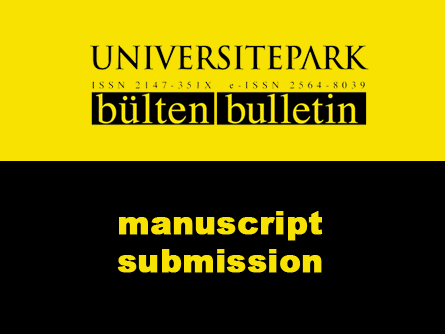Comparison of Geography Self-Efficacy Levels of Students Taking Geography Course
pp. 19-27 | Published Online: December 2014 | DOI: 10.12973/unibulletin.312.2
Suleyman Hilmi Sahin
![]() Full text PDF |
3940 |
3519
Full text PDF |
3940 |
3519
Abstract
In today’s education world, the fact that students and teachers have high self-efficacy perception ensures that their education life is more efficient. This study aimed to investigate self-efficacy levels of student candidates who received geography education in Social Sciences Teaching and Geography Teaching at the Geography Departments of Faculties of Science and Arts toward geography learning areas in the curriculum. Geography self-efficacy scale and a demographic information form were applied to the participants. As data were not normally distributed, non-parametric Whitney and Kruskal-Wallis tests were used to compare geography self-efficacy levels among the variables. Research findings revealed that male students’ geography self-efficacy levels were higher. In addition, a statistically significant difference was found between the geography self-efficacy levels in the different departments where geography education has been lectured, and these results are discussed in light of the relevant literature.
Keywords: geography, social sciences teaching, geography teaching, self-efficacy perception
ReferencesAzar, A. (2010). Ortaogretim fen bilimleri ve matematik ogretmeni adaylarinin oz yeterlilik inanclari. ZKU Sosyal Bilimler Dergisi, 6(12), 235-252.
Bandura, A. (1977). Self-efficacy: Toward a Unifying Theory of Behavioral Change. Psychological Review, 84(2), 191-215.
Bandura, A. (1991). Social Cognitive theory of self-regulation, Organizational Behavior and human Decision Processes, 50, 248-287.
Bandura, A. (1993). Perceived Self-Efficacy in cognitive development and functioning. Educational Psychologist, 28(2), 117-148.
Bandura, A. (1994). Self-efficacy. In V. S. Ramachaudran (Ed.), Encyclopedia of human behavior, 4 (pp. 71-81). New York: Academic Press.
Bandura, A. (1997). Self-efficacy: The exercise of control. New York: W. H. Freeman and Company.
Buran, N. H. (2012). Bilirkişi: Sorun mu? Çözüm mü? Üniversitepark Bülten, 1(1).
Buran, N. H. (2013). SGK’nın Malı Deniz. Üniversitepark Bülten, 2(2).
Capa, Y., Cakiroglu, J., & Sarikaya, H. (2005). The Development and Validation of a Turkish Version of Teachers’ Sense of Efficacy Scale. Egitim ve Bilim 30(137), 74-81.
Chemers, M. M., Hu, L., & Garcia, B. F. (2001). Academic self-efficacy and first year college student performance and adjustment. Journal of Educational Psychology, 93, 55-64.
Cimen, S. (2007). İlkogretim ogretmenlerinin tukenmislik yasantilari ve yeterlik algilari, (Unpublished Master’s thesis). Kocaeli Universitesi, Kocaeli.
Colak, I., Altinkurt, Y., & Yilmaz, K. (2014). The Relationship between Teachers’ Teacher Leadership Roles and Organizational Commitment Levels. Educational Process: International Journal, 3(1-2), 35-51.
Coskun, O. (2007). Erzurum’daki sosyal bilgiler ogretmen adaylarinin cografya alanina yonelik oz yeterlik seviyeleri uzerine bir inceleme, KKEFD/JOKKEF 15, 201-221.
Dweck, C. S. (1986). Motivational process affecting learning. American Psychologist, 41(10), 1040-1048.
Ekinci, N. (2012). Teacher Self-Efficacy Beliefs of Candidate Teachers in Education Faculty and Pedagogical Formation Program. Educational Process: International Journal, 1(1-2), 19-28.
Hazir-Bikmaz, F. (2004). Sinif ogretmenlerinin fen ogretiminde oz yeterlilik inanci olceginin gecerlilik ve guvenirlik calismasi. Milli Egitim Dergisi, 161.
Hosgorur, T., & Apikoglu, S. (2013). Relationship Between School Administrators’ Anxiety Levels for Authority Use and Burnout Levels. Educational Process: International Journal, 2(1-2), 19-35.
Johnson, B. (2001). Toward a new classification of nonexperimental quantitative research. Educational Researcher, 30(2), 3-13.
Kaptan, F., & Korkmaz, H. (2002) Probleme dayali ogrenme yaklasiminin hizmet oncesi fen ogretmenlerinin problem cozme becerileri ve oz yeterlik inanc duzeylerine etkisi. V. Ulusal Fen Bilimleri ve Matematik Egitimi Kongresi, 16-18 Eylul 2002, Ankara.
Karadeniz, C. (2005). Sosyal bilgiler ogretmen adaylarinin cografya alanina iliskin oz yeterlik inanci olceginin gelistirilmesi gecerlik ve guvenirlik calismasi. Ondokuz Mayis Universitesi Egitim Fakultesi Dergisi, (20), 63-69.
Karadeniz, C. (2011), Ogretmenlerin cografi oz yeterlik inanclari (Ordu Ili Ornegi). Egitim Bilim Toplum Dergisi, (9)35, 28-47.
Karadeniz, C., & Ozdemir, N. (2006). Sosyal bilgiler ogretmen adaylarinin cografya alanina iliskin oz yeterlik inanclari (Ondokuz Mayis Universitesi Ornegi). On Dokuz Mayis Universitesi Egitim Fakultesi Dergisi, (22), 23-30.
McMillan, J. H., & Schumacher, S. (2010). Research in education: Evidence-based inquiry, (7th ed.). New York: Pearson Publishing.
Oktaylar, H. C. (2006). KPSS egitim bilimleri. Ankara: Yargi Yayinevi.
Pajares, F. (1996). Self-efficacy beliefs in achievement settings. Review of Educational Research, 66, 543-578.
Sahranavard, M., & Hassan, S. A. (2012). The Relationship between Self-Concept, Self-Efficacy, Self-Esteem, Anxiety and Science Performance among Iranian Students. Middle-East Journal of Scientific Research, 12(9), 1190-1196.
Saricam, H., & Sakiz, H. (2014). Burnout and teacher self-efficacy among teachers working in special education institutions in Turkey. Educational Studies, 40(4), 423-437.
Schunk, D. H. (2003). Self-efficacy for reading and writing: Influence of modeling, goal setting, and self-evaluation. Reading and Writing Quarterly, 19 (2), 159-172.
Schunk, D. H., & Hanson, A. R. (1985). Peer models: Influence on children's self-efficacy and achievement. Journal of Educational Psychology, 77, 313-322.
Sohrabi, R., Mohammadi, A., & Aghdam, G. A. (2013). Effectiveness of group counseling with problem solving approach on educational self-efficacy improving. Procedia-Social and Behavioral Sciences, 84, 1782-1784.
Tschannen-Moran, M., & Hoy, A. H. (2001). Teacher Efficacy: Capturing an Elusive Construct. Teaching and Teacher Education, 17, 783-805.
Yaman, S., & Cansungu, O., & Altuncekic, A. (2004). Fen bilgisi ogretmen adaylarinin ozyeterlik inanc duzeylerinin incelenmesi uzerine bir arastirma. Turk Egitim Bilimleri Dergisi, 2(3), 355-364.
Yavuzer, Y., & Koc M. (2002). Egitim fakultesi ogrencilerinin ogretmen yetkinlikleri uzerinde bir degerlendirme. Nigde Universitesi Egitim Fakultesi Dergisi, 1(1), 35-43.
Yılmaz, K. (2013). 10 soruda 4+4+4 eğitim sistemi. Üniversitepark Bülten, 2(2).
Zimmerman, B. J. (2000). Self-efficacy: An essential motive to learn. Contemporary Educational Psychology, 25(1), 82-91.
UNIBULLETIN News!
► New issue coming soon! (Volume 13 Issue 1, 2024)
► Call for Papers
UNIBULLETIN is calling for submissions. Authors are invited to submit papers from the all fields of the Education (General) and Social Sciences (General) in the international context. All submissions should be presented only in English.
